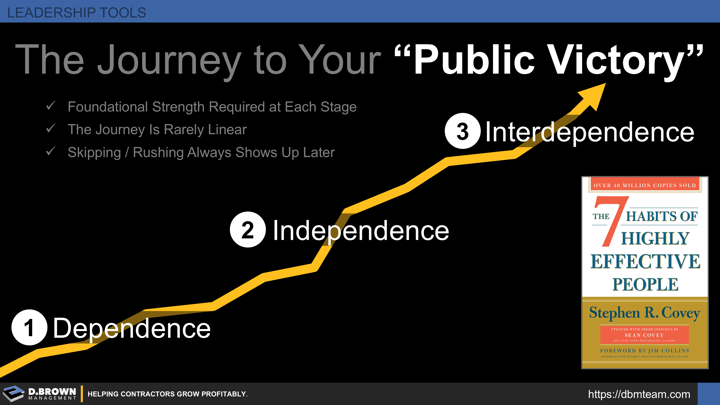While we may like to think of ourselves as 'independent,' it is not the highest stage of development. Dr. Stephen Covey describes three stages of development in his book The Seven Habits of Highly Successful People.
- When we start out in life, we are all DEPENDENT on others to provide nearly everything for us.
- As we grow older, our first journey is toward being INDEPENDENT in all areas, starting with small steps and leading to major milestones like driving and moving out.
- This struggle for independence often interferes with our journey to the final stage of INTERDEPENDENCE, where we recognize that we are far more valuable if we can work effectively together.
Leaders must set the conditions to help each team member move through these different stages of development in different areas of their lives. Stages cannot be skipped. We will all be at different stages in different aspects of our personal and professional lives.
Schedule a call to learn how we help teams accelerate development

